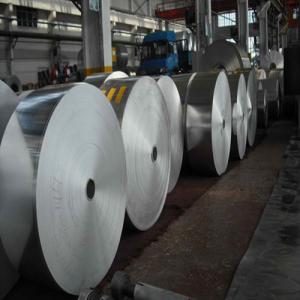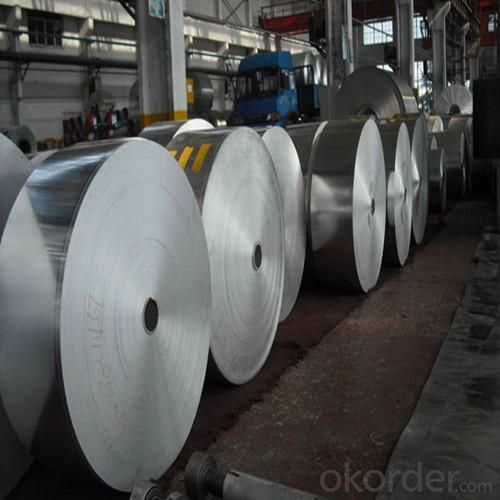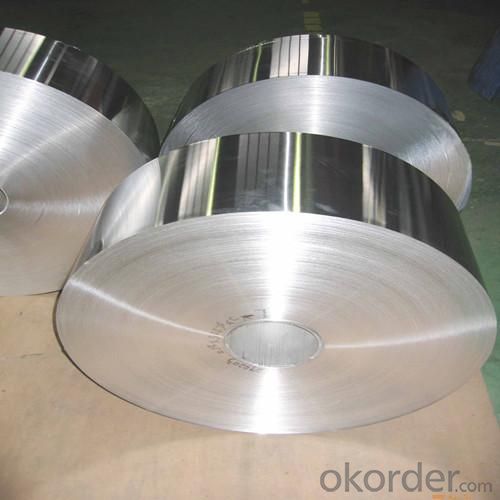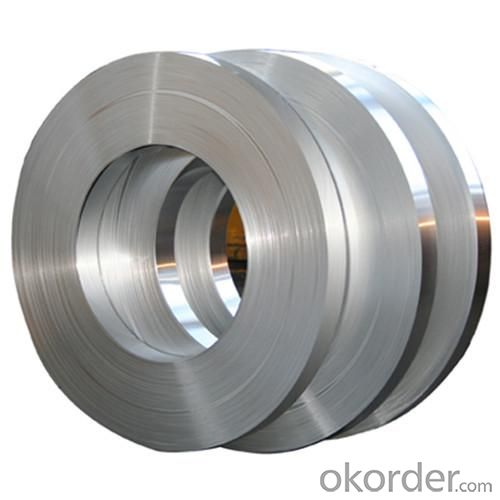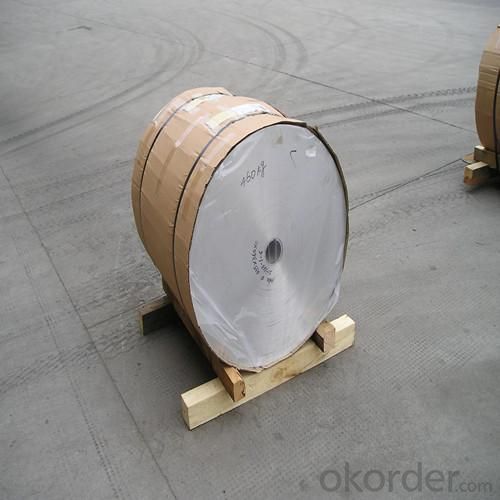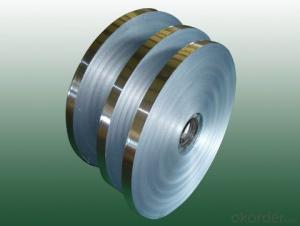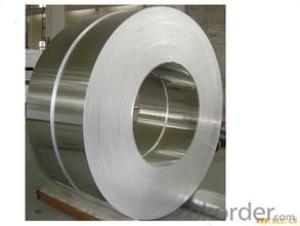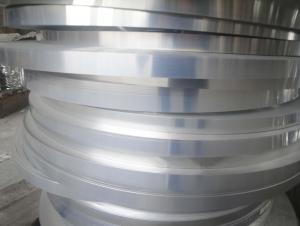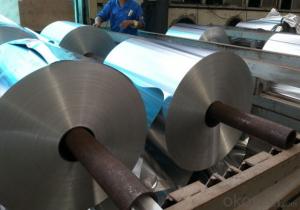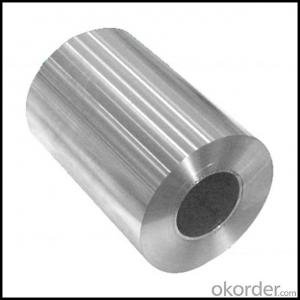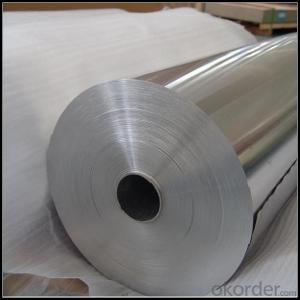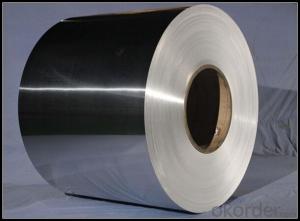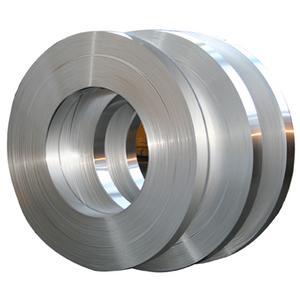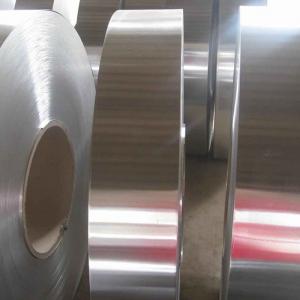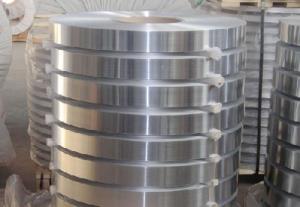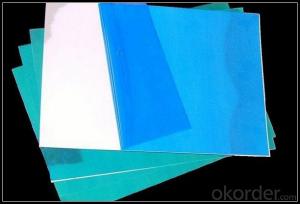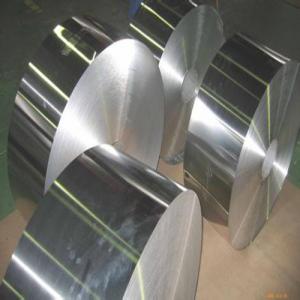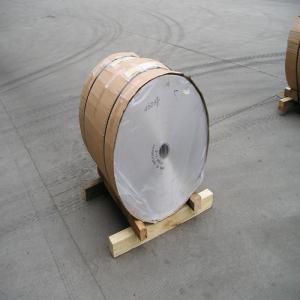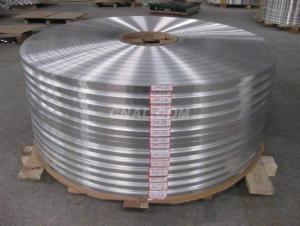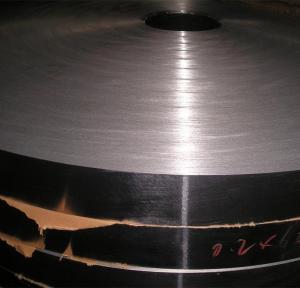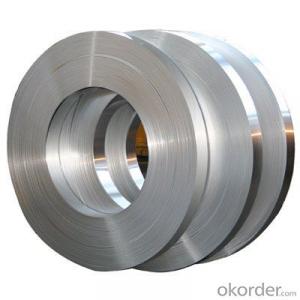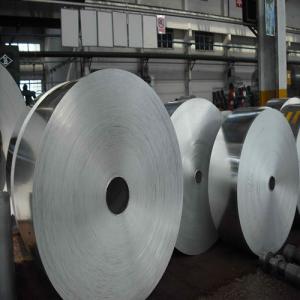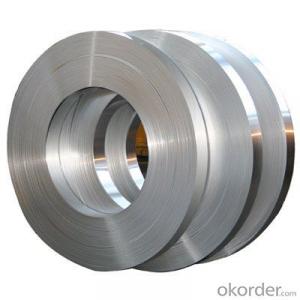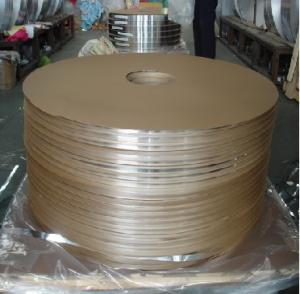1 Inch Aluminum Strips AA8011
- Loading Port:
- China Main Port
- Payment Terms:
- TT or LC
- Min Order Qty:
- 5 Tons m.t.
- Supply Capability:
- 1000 Tons Per Month m.t./month
OKorder Service Pledge
OKorder Financial Service
You Might Also Like
1. Specifications of Aluminum Strips AA8011
Alloy Number | AA8011 |
Temper | Temper H12, H14, H16, H18, H22, H24, H26, H32,HO, F |
Thickness | 0.10-500mm |
Diameter | 10mm- 2200mm |
Standard | GB/T3880-2006, ASTM, ISO, EU standard |
Special specification is available on customers' requirements.
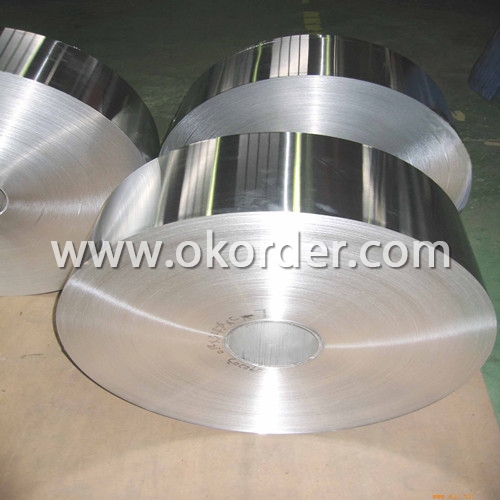
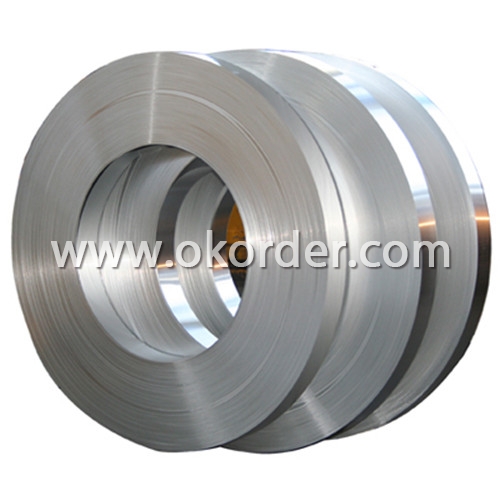
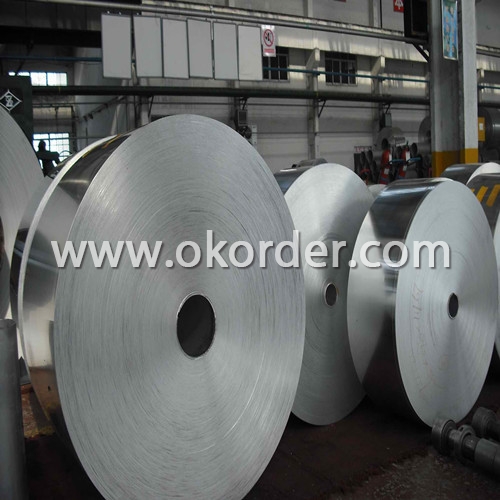
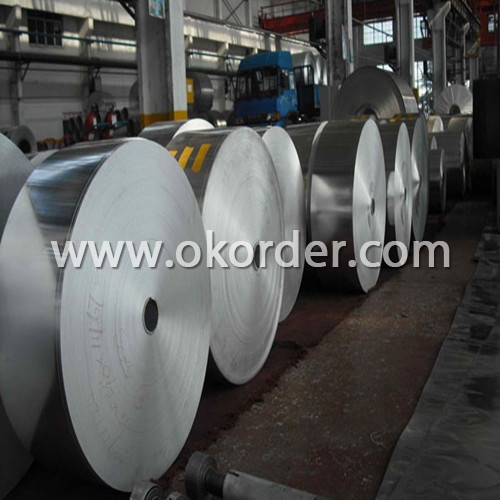
2. Usage/Applications of Aluminum Strips AA8011
Aluminum strips are widely used for PS printed materials substrate, building decoration materials, stamping products, building mirror materials, nameplate, insulation materials, aluminum plastic composite material, capacitor strip, transformer strip, welding parts, heat exchanger, clock surface and disk, kitchen utensils, reflecting apparatus etc.
3. Packaging & Delivery of Aluminum Strips AA8011
Packaging: Seaworthy package, bubble plastic bag inside, anti-moisture paper wrapped outside, covered with cartons, on wooden pallets, in containers. Pallet weight: Max. 2.30 tons.
Shipment: the goods will be delivered in 30 days after getting the buyer's payment.
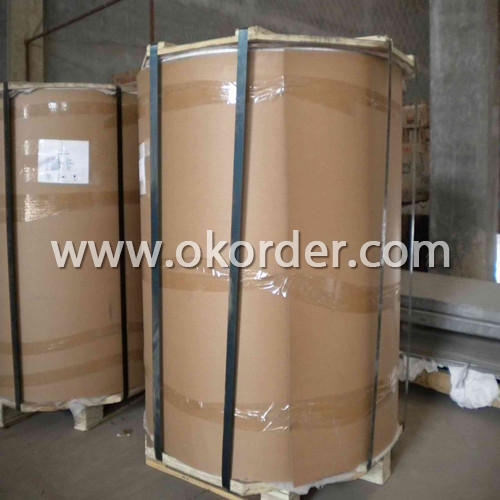
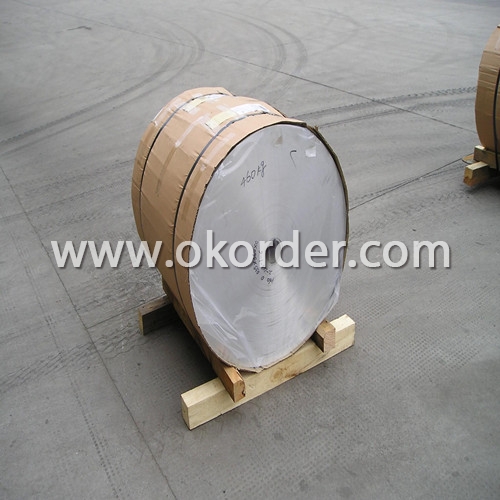
4. Production Flow of Aluminum Strips AA8011
Rolling--Annealing--Slitting—Sawing, Cut-To-Length, Shearing
- Q: Is it possible to use aluminum strips for the purpose of covering the interior walls of a building?
- <p>Yes, aluminum strips can be used for interior wall cladding. They are known for their durability, low maintenance, and resistance to moisture and corrosion, making them suitable for various interior applications. Aluminum strips are lightweight, easy to install, and can be used in both residential and commercial settings. They come in various finishes and colors, allowing for customization to match the desired aesthetic. However, it's important to ensure proper installation and adherence to building codes and safety standards.</p>
- Q: What types of aluminum are more cost-effective for specific applications?
- <p>Yes, there are different types of aluminum alloys that offer varying degrees of cost-effectiveness depending on the application. For instance, 1100 series aluminum, which is 99% pure, is the most cost-effective due to its low alloying content but has limited strength. On the other hand, 6000 series alloys, like 6061, are stronger and more durable, making them ideal for structural applications but slightly more expensive. The choice depends on factors like strength, corrosion resistance, and weight requirements, which can influence the cost-effectiveness of an aluminum alloy for a specific use.</p>
- Q: Explain how aluminum strips can impact the waterproofing process and their role in construction.
- <p>Aluminum strips play a crucial role in waterproofing by serving as a barrier against water penetration. They are often used in construction to seal joints and seams where water could potentially infiltrate. These strips are durable, corrosion-resistant, and flexible, making them ideal for maintaining a watertight seal even under fluctuating temperatures and structural movements. They can be used in conjunction with other waterproofing materials such as sealants and membranes to create a robust defense against water damage. By preventing water from entering buildings or structures, aluminum strips help to protect against moisture-related issues like mold, structural decay, and deterioration, thereby enhancing the longevity and integrity of the construction.</p>
- Q: What are the unique production techniques employed in the manufacturing of high-quality aluminum strips?
- <p>High-quality aluminum strips are produced using specialized manufacturing methods to ensure precision and consistency. Key methods include precision casting to achieve uniform thickness, continuous casting for improved material properties, and cold rolling to refine the strip's dimensions and surface finish. Annealing processes are also crucial for enhancing ductility and reducing hardness. Additionally, advanced surface treatments like anodizing or coating may be applied to improve corrosion resistance and aesthetics. Quality control measures such as strict dimensional checks and surface inspections are integral to ensuring the strips meet stringent quality standards.</p>
- Q: What specific considerations or precautions should be taken when using aluminum strips in extremely cold weather conditions?
- <p>In cold climates, aluminum strips may become more brittle and susceptible to cracking or breaking. It's important to use aluminum alloys specifically designed for low-temperature applications to maintain strength and ductility. Proper installation is crucial, ensuring that strips are not overly stressed or subjected to sharp bends that could lead to fractures. Additionally, it's advisable to check for any condensation or ice buildup that could cause slippage or damage. Regular inspections are recommended to identify and address any issues before they become critical.</p>
- Q: Is it possible to utilize aluminum strips for constructing a decorative railing system for residential or commercial purposes?
- <p>Yes, you can use aluminum strips to create a decorative railing system for your home or business. Aluminum is a popular choice due to its durability, low maintenance, and resistance to rust and corrosion. It can be easily shaped and painted to match the aesthetic of your property. Ensure that the railing meets local building codes and safety standards, and consider consulting with a professional to design and install the system for optimal safety and appearance.</p>
- Q: 1060 what is the hardness of aluminum strip?
- Hardness, HB, is generally referred to as Brinell hardness in the mechanical industry".
- Q: This question asks for a comparison between pure aluminum and aluminum alloy, highlighting their distinct characteristics.
- <p>Aluminum is a lightweight, soft, and ductile metal found in the Earth's crust. It is highly reactive and conducts heat and electricity well. Aluminum alloy, on the other hand, is a mixture of aluminum with other elements such as copper, magnesium, or silicon. These alloys are stronger, more durable, and have improved mechanical properties compared to pure aluminum. They are also less prone to corrosion and can be tailored for specific applications, making them widely used in industries like aerospace, automotive, and construction.</p>
- Q: Is it possible to utilize aluminum strips in environments with high temperatures?
- <p>Aluminum strips can be used in high-temperature environments, but their performance and longevity depend on the specific conditions and the alloy type. Pure aluminum has a melting point of 660掳C (1220掳F), but aluminum alloys can be designed to withstand higher temperatures. For instance, some aluminum alloys are used in aerospace and automotive applications where they experience high temperatures. However, prolonged exposure to high temperatures can lead to material degradation, so it's crucial to select the right alloy and consider the temperature limits specified by the manufacturer for the intended application.</p>
- Q: Explain the impact of aluminum strips on indoor air quality, including any potential benefits or drawbacks.
- <p>Aluminum strips themselves do not directly affect indoor air quality. They are often used in construction and design for their strength and lightweight properties. However, if aluminum strips are improperly treated or coated with harmful chemicals, they could potentially off-gas and contribute to poor indoor air quality. Additionally, aluminum strips can sometimes be used in conjunction with air purifiers or ventilation systems, where they might help in filtering out pollutants. It's essential to ensure that any materials used in indoor spaces are safe and do not release harmful substances into the air.</p>
1. Manufacturer Overview
| Location | Henan,China |
| Year Established | 2002 |
| Annual Output Value | Above US$200 Million |
| Main Markets | Mid East;Eastern Europe;North America |
| Company Certifications | ISO 9001:2000;ISO 14001:2004;OHSAS 18001 |
2. Manufacturer Certificates
| a) Certification Name | |
| Range | |
| Reference | |
| Validity Period |
3. Manufacturer Capability
| a) Trade Capacity | |
| Nearest Port | Shanghai |
| Export Percentage | 30%-50% |
| No.of Employees in Trade Department | 21-50 People |
| Language Spoken: | English;Chinese |
| b) Factory Information | |
| Factory Size: | Above 100,000 square meters |
| No. of Production Lines | Above 10 |
| Contract Manufacturing | OEM Service Offered;Design Service Offered |
| Product Price Range | Average |
Send your message to us
1 Inch Aluminum Strips AA8011
- Loading Port:
- China Main Port
- Payment Terms:
- TT or LC
- Min Order Qty:
- 5 Tons m.t.
- Supply Capability:
- 1000 Tons Per Month m.t./month
OKorder Service Pledge
OKorder Financial Service
Similar products
Hot products
Hot Searches
Related keywords
